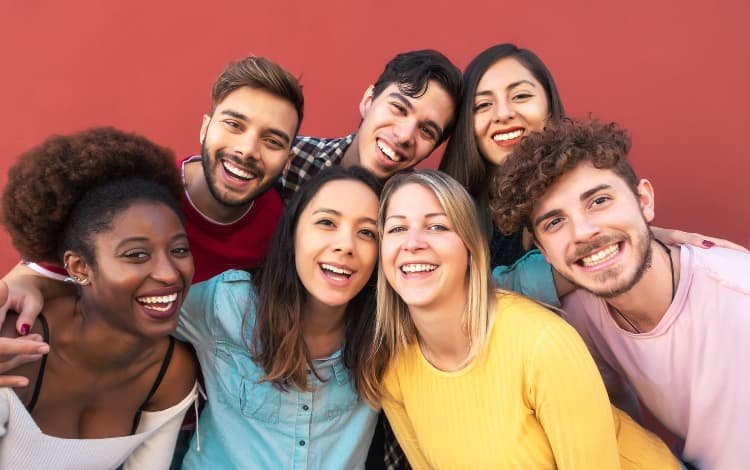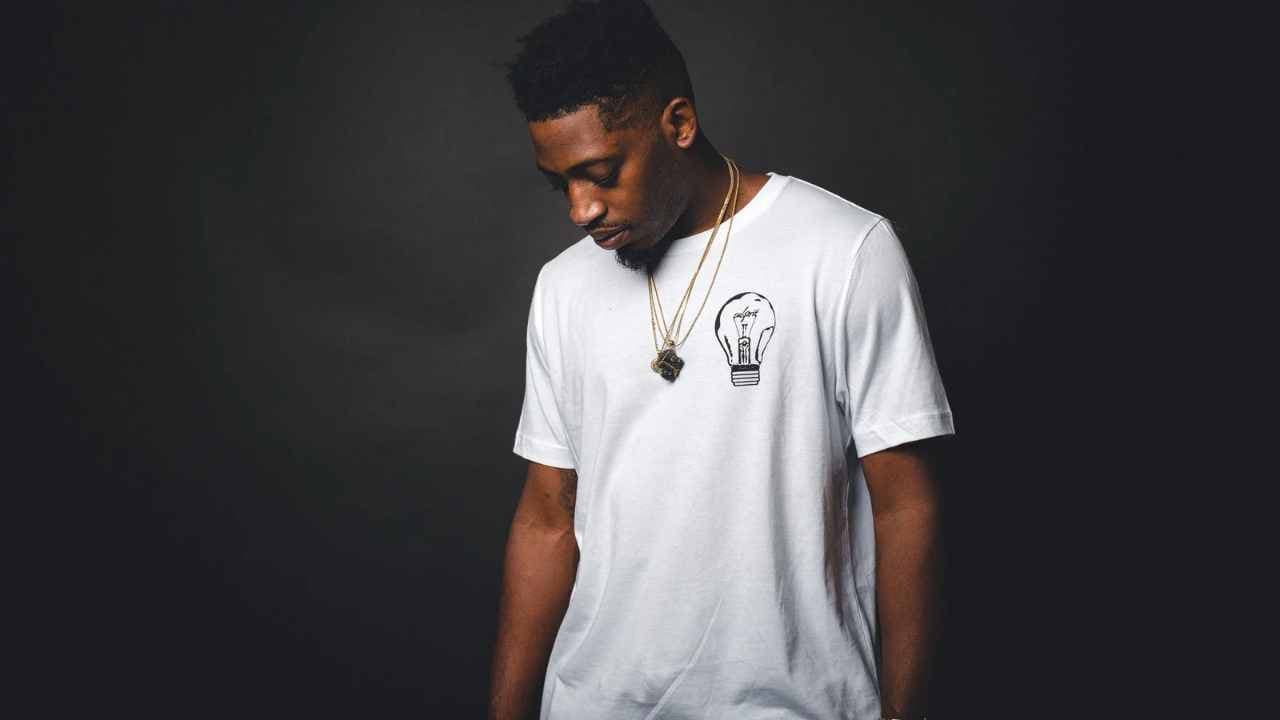From Self-Doubt to Self-Love: Navigating Internalized Homophobia
When was the last time you felt comfortable holding your partner's hand in public?
If you hesitated before answering, you're not alone.
Even in 2025, many gay men still grapple with the invisible weight of internalized homophobia.
What is Internalized Homophobia?
Internalized homophobia isn't just self-hatred. It's a complex psychological phenomenon that varies across individuals, cultures, and generations.
It's like an invisible backpack filled with society's judgments.
In the 1950s, this backpack might have been stuffed with fears of arrest or forced medical treatments.
Today, it might contain subtler but equally harmful messages about 'fitting in' or 'acting straight.'
The weight of this backpack changes based on our intersecting identities.
A gay man of color might feel pressure from cultural expectations, while a gay man from a deeply religious background might grapple with spiritual conflicts.
Surprisingly, internalized homophobia can manifest in seemingly opposite ways.
Some may retreat into the closet, while others might overcompensate with excessive pride or hyper-masculinity.
It's not a simple 'yes' or 'no' state but a spectrum we navigate daily.
To understand internalized homophobia, we must examine our language.
Phrases like 'that's so gay' or 'I'm not like other gay men' often stem from societal homophobia we've absorbed.
By unpacking this invisible backpack, we can lighten our load and move towards genuine self-acceptance.
The Early Roots: How It Begins
Many gay men understand their sexuality in childhood, often before sharing it with others.
In this confusing and lonely time, we absorb polarizing societal narratives:
Homophobia in society includes discrimination, lack of legal protections, and hateful rhetoric.
Non-accepting family or friends can lead to feeling judged or pushed into secrecy.
Bullying and social rejection are painful experiences in school or the community.
Religious condemnation frames queerness as sinful or wrong.
Lack of representation, with few visible role models in media, business, and politics.
Cultural background shapes these experiences.
For instance:
In some cultures, family honor may intensify shame.
Religious upbringings can create deeper conflicts between faith and sexuality.
In rigid masculine communities, gay men may face pressure to conform.
Immigrant families might view homosexuality through their home country's attitudes, even in a more accepting society.
These cultural factors can complicate developing a positive gay identity, leading to deeper internalized homophobia, including shame, guilt, and self-hatred.
We start believing something is wrong with us, and this internal struggle can impact every area of life.
For gay men, internalized homophobia often intertwines with toxic masculinity.
We might overcompensate by adopting hyper-masculine behaviors, or feel inadequate for not fitting traditional male stereotypes.
This struggle can manifest in various ways, from avoiding 'feminine' interests to feeling uncomfortable in predominantly straight male spaces.
How Internalized Homophobia Affects Your Life
Internalized homophobia can affect your daily well-being, relationships, and mental health.
You may experience:
Hiding your true self from family, friends, or coworkers.
Disgust or shame about your sexual orientation.
Keeping secret romantic relationships.
Avoiding closeness or connections.
Feeling disconnected from the LGBTQ+ community.
Battling depression or anxiety or engaging in risky behaviors.
Effects of internalized homophobia:
Overachieving in your career to compensate for being gay.
Feeling uncomfortable or competitive around other gay men.
Criticizing other gay men for being 'too feminine' or 'too open'.
Avoiding or undermining long-term relationships.
It can feel overwhelming, but recognize that these feelings come from societal conditioning - not from any inherent flaw in your character.
Ready for a change? Let’s explore ways to heal and embrace your true self.
Steps to Overcome Internalized Homophobia
The weight of internalized homophobia can feel heavy.
You might recognize signs we've discussed in your life, like the hesitation to hold hands in public, discomfort in gay spaces, or the tendency to judge other gay men.
The first step towards change is recognizing these patterns.
These strategies offer new perspectives to break this cycle and reclaim your true self.
Immersion Therapy: Spend time in gay spaces, even if it feels uncomfortable. This could mean joining a gay sports league or attending LGBTQ+ events.
Broaden Your Feed: Follow gay content creators, artists, and thought leaders on social media. Seeing successful, happy gay men regularly can change your perceptions.
Mentor a Young Gay Man: Helping others can benefit us. Consider mentoring through LGBTQ+ youth organizations.
Challenge Your Attractions: If you're only attracted to a certain 'type' of man, explore why. Could internalized homophobia be limiting your connections?
Gay-Centered Mindfulness: Develop a mindfulness practice that addresses your gay identity, such as daily affirmations or meditation focused on self-acceptance.
Healing from internalized homophobia is a journey.
Be patient with yourself and recognize every small step forward.
Embracing Your Authentic Self: The Path Forward
Internalized homophobia is a complex issue rooted in societal conditioning, personal experiences, and cultural factors.
It's a continuous growth and self-discovery journey, not an immediate change.
Remember the invisible backpack we discussed?
Each step you take to challenge your internalized homophobia is like removing a burden from that backpack.
You're lightening your load, whether it's holding your partner's hand in public, exploring gay history, or confronting challenging thoughts about your identity.
This journey isn't linear. You might have days where you feel comfortable with your sexuality, followed by moments of doubt or unease.
That's okay.
Choosing self-acceptance over internalized negativity rewires those neural pathways.
Your worth isn't determined by fitting into society's boxes - gay or straight. It's determined by the love you give, the impact you make, and the life you choose to live authentically.
By addressing your internalized homophobia, you're not just helping yourself. You're contributing to a more accepting world for all LGBTQ+ individuals.
Remember that seeking support is a sign of strength.
You don't have to go through this journey alone, whether through therapy, community groups, or trusted friends.
Ready to start your self-acceptance journey? The first step begins now.
FAQs related to internalized homophobia
What counseling services specialize in treating internalized homophobia?
Most counseling services that claim to treat internalized homophobia approach it like a collection of negative thoughts that can be corrected through cognitive techniques and self-esteem building. They miss the fundamental reality: internalized homophobia isn't a thought problem – it's a nervous system problem rooted in years of survival adaptations.
Standard LGBTQ-affirming therapy often focuses on challenging negative beliefs and building pride, but internalized homophobia lives deeper than conscious thought. It's the hypervigilance that never fully switches off, the automatic monitoring of your voice and gestures, and the way your body tenses when you exist authentically in public spaces. These responses developed to keep you safe during vulnerable developmental years.
Through my specialized practice, I work with gay men who recognize that internalized homophobia requires therapeutic approaches designed around trauma and nervous system regulation. This work addresses why your body still reacts to authenticity as danger, why shame persists even in accepting environments, and how to recognize the difference between genuine safety and performed acceptance.
You can book a consultation through my website to explore whether specialized therapy addresses the deeper patterns rather than just the surface symptoms of internalized homophobia.
Which therapy apps offer support for overcoming internalized homophobia?
Therapy apps treating internalized homophobia typically provide meditation exercises, daily affirmations, and cognitive behavioral techniques that assume you can think your way out of trauma responses. They offer modules on self-acceptance and positive thinking that completely miss why shame feels so embedded in your nervous system.
Internalized homophobia isn't solved through mindfulness practices or self-compassion exercises. It's a complex constellation of survival strategies that your body learned during years when hiding parts of yourself felt necessary for emotional or physical safety. The shame, hypervigilance, and self-monitoring patterns persist because they served crucial protective functions.
Apps can't address why seeing other gay couples triggers anxiety, why your throat tightens when you try to speak authentically, or why acceptance from others doesn't automatically create internal peace. These responses live in your nervous system, not in your thoughts, and require therapeutic relationships designed to address developmental trauma.
The psychological depth needed to rewire these protective patterns can't be delivered through algorithmic content or automated support features. Real healing happens through specialized therapeutic work that understands how minority stress embeds in your body.
Are there online coaching programs focused on internalized homophobia?
Online coaching programs treat internalized homophobia like a confidence problem that can be solved through mindset shifts and action plans. They offer modules on self-acceptance, goal-setting, and behavioral changes that assume shame is a choice you're making rather than a trauma response you developed.
Coaching approaches focus on moving forward and building new habits, but internalized homophobia requires examining how survival strategies from your past continue affecting your present. The automatic self-monitoring, people-pleasing, and emotional numbing that create internal conflict aren't bad habits to be coached away – they're protective responses that kept you safe.
Most coaching programs can't address why your nervous system still activates around authenticity, why vulnerability feels like stepping into traffic, or why the shame persists even when you're surrounded by acceptance. These patterns developed during crucial developmental periods and require therapeutic understanding rather than motivational strategies.
The work of healing internalized homophobia involves rewiring nervous system responses that formed during years of necessary hiding. That depth of change happens through specialized therapy designed to address how minority stress affects psychological development, not through coaching techniques focused on behavior modification.
What mental health clinics provide treatment for internalized homophobia?
Most mental health clinics approach internalized homophobia through standard cognitive behavioral therapy models that treat shame like incorrect thinking patterns. Their LGBTQ programs often focus on building self-esteem and challenging negative thoughts without understanding that internalized homophobia functions as a complex trauma response system.
These clinics typically assign you to any therapist with LGBTQ training, assuming that basic affirmation and cognitive techniques will address patterns that developed over years as survival strategies. They miss how internalized homophobia shows up as hypervigilance, emotional numbing, and the exhausting work of monitoring your self-presentation in every social situation.
Real treatment for internalized homophobia requires someone who understands minority stress, developmental trauma, and how growing up different affects nervous system development. This work addresses why your body learned to associate authenticity with danger and how those protective responses continue even in genuinely safe environments.
Through my specialized online practice, I provide therapy specifically designed for the complex ways internalized homophobia affects gay men's psychological and physiological functioning. This isn't generic LGBTQ counseling – it's therapeutic work addressing how minority stress embeds in your nervous system.
Where can I find support groups for internalized homophobia near me?
Support groups for internalized homophobia often recreate the same performance dynamics that reinforce the patterns you're trying to heal. Group settings can trigger the monitoring, people-pleasing, and strategic self-revelation that internalized homophobia creates, making it difficult to access genuine vulnerability.
Most support groups focus on sharing experiences and mutual encouragement, but internalized homophobia isn't healed through group processing alone. The hypervigilance and shame responses that create internal conflict require individual therapeutic attention to address how these patterns developed and continue functioning.
Group environments often activate the same survival strategies that internalized homophobia taught you: scanning the room for safety, measuring your self-expression against others' reactions, and performing the "right" kind of struggle or recovery. These automatic responses can actually reinforce the patterns you're trying to change.
Individual therapy work allows you to examine these protective strategies without the additional layer of social performance that groups often require. Through specialized one-on-one sessions, you can address why your nervous system learned these responses and how to create genuine internal safety.
Which organizations offer professional help for internalized homophobia?
Most LGBTQ organizations approach internalized homophobia through education, community building, and affirmation-based programming. While these approaches provide valuable support, they often treat internalized homophobia as a knowledge problem rather than a trauma response that requires specialized therapeutic intervention.
Organizations typically offer workshops on self-acceptance, pride building, and challenging negative messages, but internalized homophobia operates deeper than conscious beliefs. It's embedded in nervous system responses that developed during vulnerable developmental periods when authenticity felt dangerous.
Professional help for internalized homophobia requires someone trained in trauma therapy who understands how minority stress affects psychological development. This work addresses why shame feels so embedded in your body, why authenticity triggers anxiety responses, and how protective strategies continue even when they're no longer necessary.
Through my practice, I provide specialized therapy that treats internalized homophobia as a complex adaptation to minority stress rather than a collection of negative thoughts. This approach addresses the deeper nervous system patterns that create ongoing internal conflict about your identity.
You can schedule a consultation to explore whether therapeutic work designed specifically for these psychological dynamics matches what you're experiencing.
What subscription apps provide ongoing support for internalized homophobia?
Subscription apps treating internalized homophobia typically offer daily content, meditation exercises, and community features that assume consistent engagement with positive messaging will rewire trauma responses. They provide affirmations, progress tracking, and peer support that treat shame like a habit that can be changed through repetition and willpower.
These apps can't address the physiological responses that internalized homophobia creates: why your heart rate increases when you express authenticity, why your throat tightens during vulnerable conversations, or why hypervigilance activates in environments where you should feel safe. These responses developed as survival mechanisms and require therapeutic intervention rather than app-based self-help.
Internalized homophobia isn't solved through daily motivation or community encouragement. It requires examining how minority stress affected your nervous system development and learning to recognize the difference between genuine danger and trauma responses that no longer serve protective functions.
The depth of work needed to heal these embedded patterns can't be delivered through subscription content or algorithmic support. Real change happens through therapeutic relationships designed to address how developmental hiding affects adult psychological functioning.
Are there virtual therapy platforms that address internalized homophobia?
Most virtual therapy platforms treat internalized homophobia like any other mental health concern, assigning you to available therapists with basic LGBTQ training. They assume that standard therapy techniques delivered through video sessions will address patterns that require specialized understanding of minority stress and developmental trauma.
These platforms typically offer cognitive behavioral approaches focused on challenging negative thoughts and building self-esteem. They miss that internalized homophobia functions as a complex nervous system adaptation to years of necessary hiding and strategic self-presentation.
Real therapeutic work for internalized homophobia requires someone who understands why your body learned to associate authenticity with danger, how hypervigilance patterns continue even in safe environments, and why traditional self-acceptance techniques often feel impossible to implement.
Through my specialized online practice, I provide virtual therapy sessions designed specifically for the ways internalized homophobia affects gay men's psychological and physiological functioning. This work addresses the deeper trauma responses rather than just the surface symptoms of shame and self-criticism.
You can book a consultation through my website to explore whether specialized virtual therapy addresses what you're actually experiencing rather than generic approaches.
What wellness retreats focus on healing internalized homophobia?
Wellness retreats addressing internalized homophobia typically offer weekend intensives focused on self-love practices, affirmation exercises, and group sharing that treat shame like a mindset problem requiring spiritual or emotional breakthrough experiences. These formats assume that intensive positive experiences can override trauma responses that developed over years.
Retreat settings often trigger the same performance dynamics that internalized homophobia creates: monitoring how much space you take up, measuring your emotional expression against others' responses, and performing the "right" kind of healing or breakthrough. The group environment can actually reinforce the hypervigilance patterns you're trying to heal.
Internalized homophobia requires sustained therapeutic work to address how minority stress affected your nervous system development. The shame and self-monitoring patterns that create internal conflict can't be resolved through weekend workshops or intensive spiritual experiences, no matter how well-intentioned.
Real healing happens through ongoing therapeutic relationships that allow you to examine these protective strategies without the additional performance pressure that retreat settings often create. The work of rewiring trauma responses requires consistent, individualized attention over time rather than intensive group experiences.
Which licensed therapists have expertise in internalized homophobia?
Most licensed therapists with LGBTQ credentials approach internalized homophobia through standard cognitive and behavioral techniques that treat shame like incorrect thinking patterns. They focus on challenging negative beliefs and building self-esteem without understanding that internalized homophobia functions as a complex trauma response system.
Finding a therapist with genuine expertise requires looking beyond basic LGBTQ training to someone who understands minority stress, developmental trauma, and how growing up different affects nervous system development. This work requires specialized knowledge of how protective strategies embed in your body and continue functioning even in genuinely accepting environments.
Through my practice as a gay psychotherapist, I provide specialized therapy for gay men who recognize that internalized homophobia requires therapeutic approaches designed around trauma and nervous system regulation. This work addresses why authenticity still feels dangerous, how hypervigilance patterns continue affecting your daily life, and why traditional self-acceptance advice often feels impossible to implement.
The expertise needed to address internalized homophobia effectively combines trauma therapy skills with deep understanding of minority stress and gay male psychological development. You can schedule a consultation through my website to explore whether this specialized approach matches what you need for genuine healing.
Why Choose Therapy with Me?
I specialize in LGBTQ+ issues and understand the community’s unique challenges.
Empathy and Experience: After helping hundreds like you, I offer a safe space for healing.
Tailored Approach: We’ll create a personalized plan to challenge internalized negativity and build self-acceptance.
Ready to start? Click here to schedule a free consultation and take your first step toward self-love.








